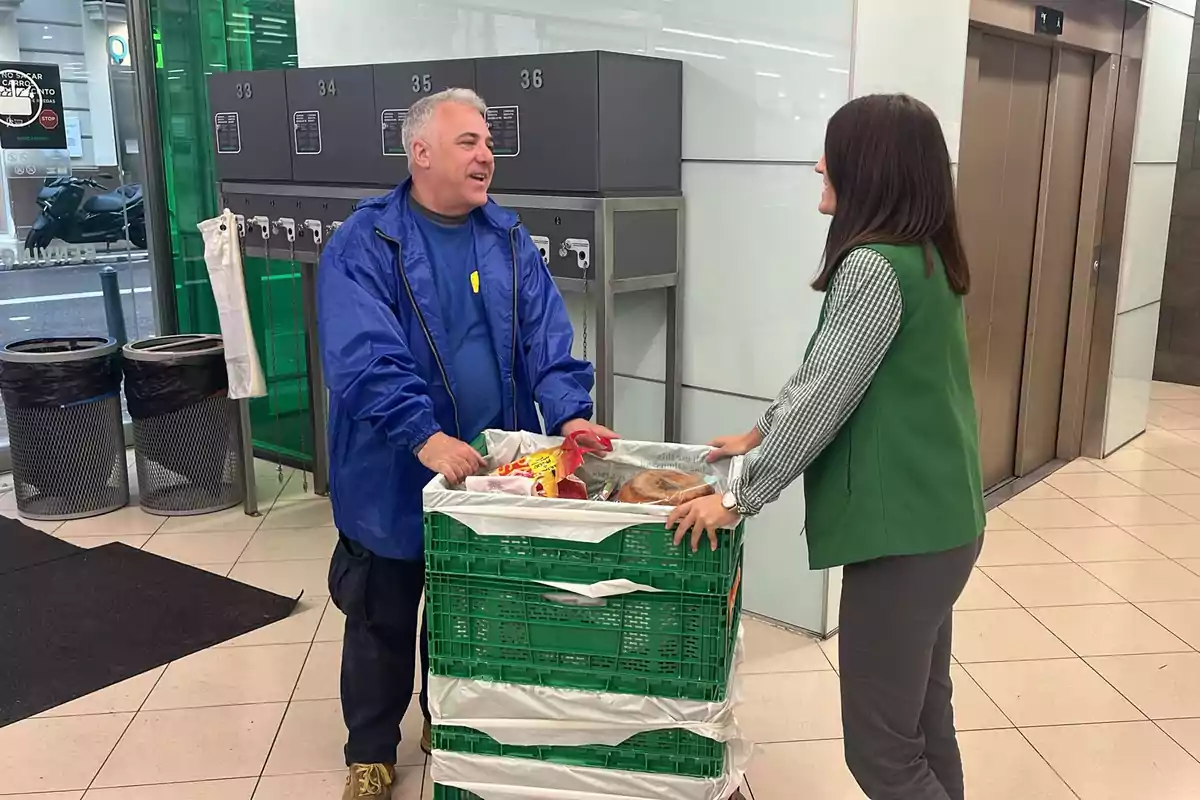
Mercadona donates 25,200 tons of food to 847 social entities
The company expands its collaboration network with 85 new entities and strengthens its commitment to the fight against food poverty.
Mercadona has strengthened its commitment to the most vulnerable groups throughout 2024, with the donation of 25,200 tons (55,555,555 pounds) of food to 847 social entities in Spain and Portugal. This figure, which is equivalent to more than 420,000 shopping carts, reflects the company's effort to optimize the distribution of aid through its collaboration network, which has added 85 new entities in the last year.
"For Mercadona, it is a pride to collaborate with so many social entities and contribute our grain of sand in the fight against food poverty," said Laura Cruz, the company's Director of Social Action.
A model of structural and continuous aid
In the province of Valencia, where since November 2024 all Mercadona stores make daily donations to soup kitchens, the company has delivered 1,800 tons (3,968,320 pounds) of food to 50 social entities, which is equivalent to 30,600 shopping carts.
Beyond direct donations, the company has participated in fundraising campaigns such as the Spring Collection and the Great Collection of November, organized by the Spanish Federation of Food Banks (FESBAL). In the latest edition, the company enabled its more than 1,600 stores for customers to make monetary donations at checkout.
"We opted for the monetary donation modality because it allows food banks to acquire the most necessary products at any given time and maximize the efficiency of the process," explained Laura Cruz.
Thanks to this initiative, the joint contribution of Mercadona and its customers has exceeded 3.8 million euros, entirely allocated to the purchase of food.
New tools to dignify aid
In addition to product donations and collaboration with solidarity campaigns, the company is committed to initiatives such as Society Cards, which allow beneficiaries to acquire the products they need in the chain's supermarkets.
"This model contributes to dignifying the act of purchase, promotes user integration, and improves their vulnerability situation," highlighted the Director of Social Action.
A commitment aligned with the SDGs
Mercadona's social action policy is part of its Corporate Social Responsibility (CSR) strategy. Since 2011, the company has been a partner of the United Nations Global Compact Spain, promoting the Sustainable Development Goals (SDGs).
In this framework, the company develops projects like Trencadís, which facilitates the labor inclusion of people with intellectual disabilities in the manufacturing of decorative murals for the fish section.
Environmental sustainability is another key axis of Mercadona's CSR plan. The company works on an Environmental Management System based on sustainable production, circular economy, and decarbonization. Among its initiatives are logistics optimization, the use of cleaner energies, and the reduction of emissions with trucks and vans of sustainable technology.
With this strategy, Mercadona reinforces its role as a socially and environmentally responsible agent, consolidating its positive impact on the environment in which it operates.
More posts: